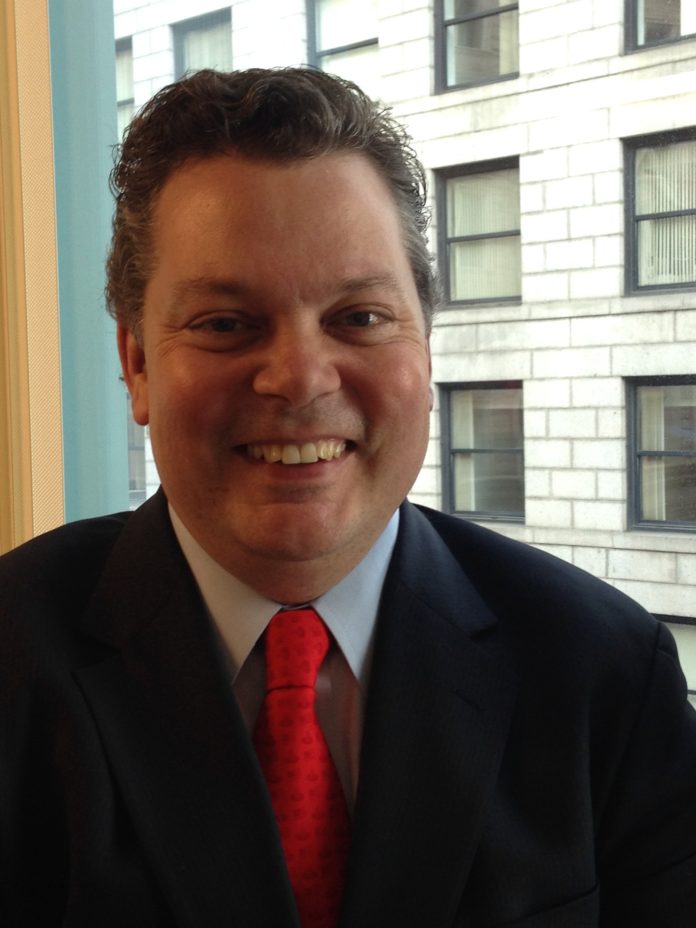
Michael Richard is senior vice president and head of seafood industry banking for Santander Bank, a new position created to help the bank grow its seafood industry segment nationally. Richard began in that position in March. He oversees the bank’s seafood focus within the asset-based lending division and is responsible for execution of the bank’s market expansion strategy for the seafood industry across the U.S. and Canada.
Richard’s financial background in the seafood industry includes the position of chief financial officer and chief operations officers for Boston-based Slade Gorton & Co., where he played an integral role in business strategy and was responsible for oversight of the firm’s finance, operations, procurement, logistics and quality insurance efforts. He has also held positions as head of North American business development for Glitnir Bank, as agribusiness and food consultant to The Hale Group and as a commodities market-maker at Free Markets. He is active in the National Fisheries Institute.
Richard has a bachelor’s degree in agriculture from the University of Iowa and is a graduate of the administration and management program at Harvard University.
PBN: What made you decide to make the switch to banking after your extensive work in the seafood industry?
RICHARD: Before my time in the seafood industry proper, I worked at Glitnir Bank, an Icelandic bank that had a strong focus on the seafood sector. When I left Glitnir, I felt that there were many opportunities and a lot of unfinished business in providing commercial services to the industry. So having the chance to get back to that kind of work is not a sudden change, as much as it is returning to my roots. I’m happy to have a chance to do it with Santander, because few organizations have as intense a focus on this space as we do.
PBN: Is seafood industry banking a new division at Santander or did it already exist? Has the focus on the seafood segment increased for Santander, and perhaps other banks, based on your experience in the industry?
RICHARD: Seafood industry banking has existed at Santander for quite some time, stretching back at least a couple of decades. But now more than ever, we’re seeing a renewed emphasis on it and a willingness to commit additional resources towards it, not just at Santander, but across the industry. I’m glad it’s become an important part of Santander’s portfolio.
PBN: You hosted a meeting during Seafood Expo 2014 in Boston in March that brought together delegates from the embassies of Brazil, Peru, Ecuador, Chile Mexico and Costa Rica. The meeting included representatives of companies in those countries, as well as U.S. companies interested in trade opportunities. Santander Bank said that that was the first-of-its-kind event. What were the results of that meeting?
RICHARD: We had a great response. Many of our customers were interested in being introduced to country representatives and there was a lot of networking going on. The event set us apart regarding Santander’s ability to bring together domestic and international companies to talk about trade opportunities. It was a very positive event.
PBN: Seafood is one of New England’s most important industries, historically and currently. Do you see that an emphasis on global trade will increase competition for those in the many types of seafood businesses in New England, particularly because imported seafood usually is less expensive and often is subject to less quality control in other countries?
RICHARD: In my view, the increasingly global scope of the seafood industry translates to increased opportunity. For example, I was recently with a company that is doubling its exports to Asia this year because of the region’s growing middle class and growing awareness of and demand for high-value items like New England lobsters and scallops. Globalization does mean that North American firms are competing on a bigger scale, but their markets are also increasing by leaps and bounds. I think, overall, it will benefit the industry.
PBN: Can you discuss some of your plans that might relate specifically to Rhode Island and how the state fits into the bigger picture of you new position at Santander Bank?
RICHARD: Rhode Island has a great tradition of world-class fishing and seafood. One thing in particular that I’m keeping an eye on is the growth in local oyster production coming out of Rhode Island. A lot of attention is being focused on that field and more investment dollars are flowing into it in recent years. And we’d love to be a part of that, to help sponsor and support that kind of growth.












